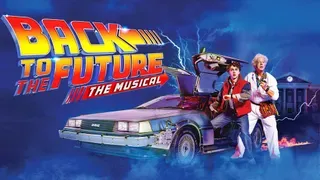December 13, 2013
Saving Mr Banks
Kevin Taft READ TIME: 3 MIN.
If the teller of a true story is actually part of the story itself, it's quite possible that the truth of the true story might not be as true as one would expect the truth to be.
If that statement seems whimsically literary (even if I toot my own horn), there's a reason for it. And that reason is two-fold. For one, the new Disney film "Saving Mr. Banks" is about how Walt Disney was able to get the rights to reluctant author P.L. Travers' books about the character Mary Poppins. That's the truth part. But, because the teller of the tale is the Disney company itself, no one is really going to come off that badly, so in that sense, the truth, as they say, is all in the telling.
That said, "Saving Mr. Banks" is wonderful Disney entertainment. It features two star leads in Tom Hanks as Walt Disney himself and Emma Thompson as the indomitable Travers. The film takes place mainly on the Disney lot in Burbank, where for two weeks Travers met with the creative team behind "Mary Poppins" in order to give approval (or not) for what they had come up with. Mostly, it was disapproval, as she really didn't like much of what was done. Clearly, history proves that Travers relented, since "Mary Poppins" went on to become a stalwart classic and one of the most popular live-action Disney films ever made.
What "Banks" does right is offer a wide audience a look into the creative process of making a film. We see the endless discussions on minor details and how much work goes into each facet, from costumes to props, to each word of a song. Most of this is seen when Travers finally arrives in California, and demands that any discussions are recorded on audio tape to preserve her wishes and instructions. There, she meets with the songwriting duo the Sherman Brothers (Jason Schwartzman and B.J. Novak), as well as screenwriter Don DaGradi (Bradley Whitford). These meetings are frustrating for the team, but often hilarious for the audience. At the same time, we understand that for Travers, the character of Mary Poppins is something she holds dear, and to watch it transform into something gaudy would be devastating.
We understand this because she frequently recalls her childhood, where she (played by Annie Rose Buckley) has a close bond with her loving father Robert (Colin Farrell). His temper and alcoholism made him lose his job at the bank, so he picks up the family to move to a house far removed from the city. There, he and his depressive wife Margaret (Ruth Wilson "The Lone Ranger"), along with his younger daughter and baby, try to make ends meet and keep the family in good spirits -- and that he does. Despite his own problems, he never lets a day go by where he doesn't entertain his loving family. His bond with P.L. (known then as "Ginty") is especially strong, and the care he has for her is affecting. But his eventual illness takes a toll on Ginty, and she struggles to keep her father on the pedestal where she's placed him.
These memories make it hard for P.L. to let go of Mary Poppins --�the character somehow has a connection to her father -- and Thompson plays this struggle beautifully. In fact, Thompson is the best thing about this film: While it is consistently entertaining, moving, and funny, Thompson is what makes the rather slight story rise above. Hanks is good as well, but his screen time is minimal. This is Thompson's film, and she has our attention from the moment she appears on screen in all her snobbish glory.
The supporting cast is made up of a hundred and one veterans, from Paul Giamatti as her driver Ralph, to Rachel Griffiths as Aunt Ellie (the Mary Poppins surrogate), to Kathy Baker as Disney's faithful assistant Tommie. All provide lovely support to Thompson, who is able to make us care for her even when she is being difficult.
As directed by John Lee Hancock ("The Rookie," "The Blind Side") the film is handsome and adopts the usual Disney flatness that all of their live-action films seem to have. While all the tech credits shine, it still looks very scrubbed and clean, like you've walked into a Disney Park where everything is presented "just so." Furthermore, Disney is portrayed as pretty much an all-around great guy, who figures out just the right thing to say to convince the stubborn Travers to give up her work to him. Truth be told, it didn't all go down with a spoonful of sugar, as the film might lead you to believe. That's just a bit of expected Disney magic to make us all believe in miracles.
Kevin Taft is a screenwriter/critic living in Los Angeles with an unnatural attachment to 'Star Wars' and the desire to be adopted by Steven Spielberg.






